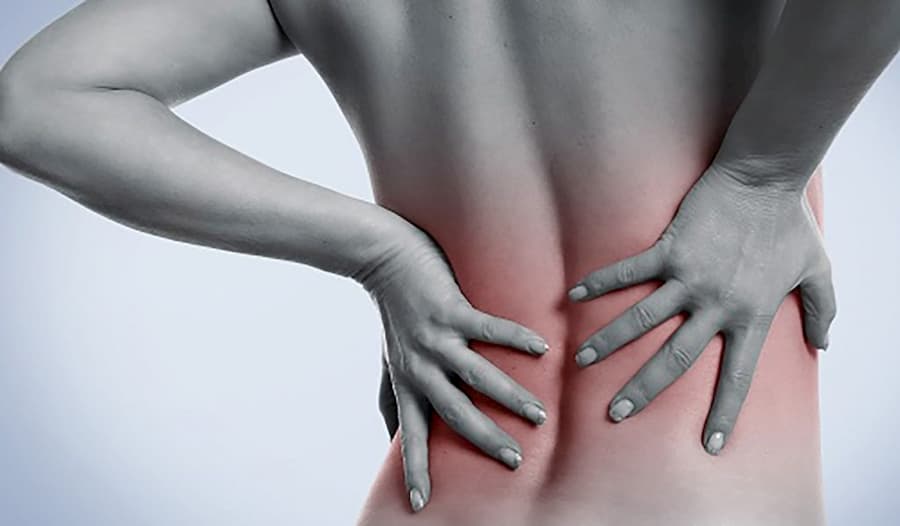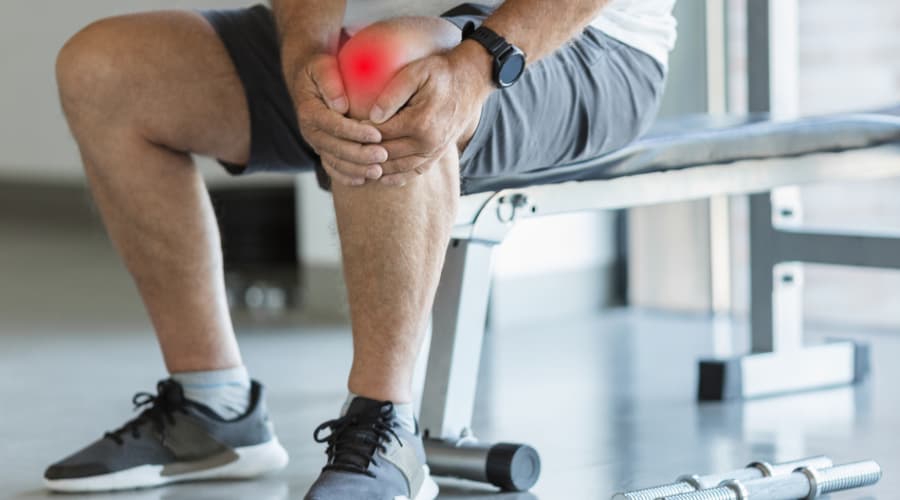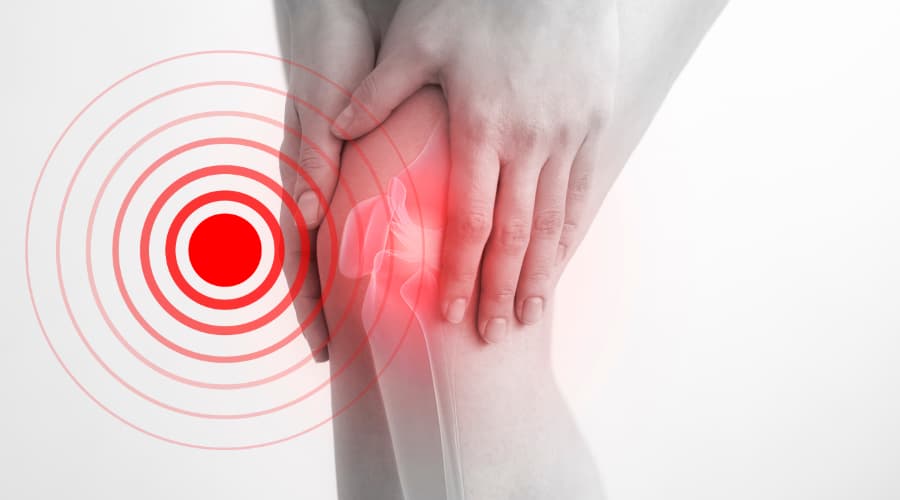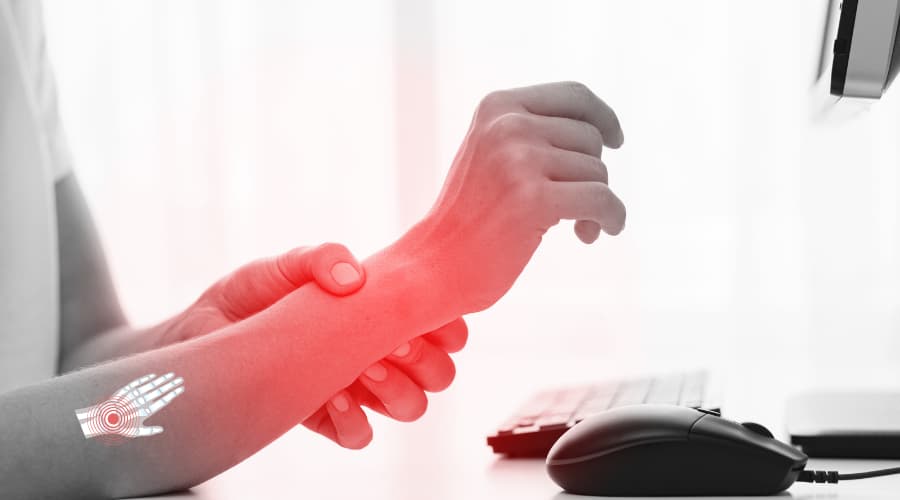The hip joint contains an acetabulum socket where the femur meets the pelvis. A cartilage covers both the femur and the acetabulum at the joint. A synovium tissue surrounds the joint, and it provides nutrients and fluids that lubricate the cartilage. Ligaments link the femur to the bone pelvis. Several tendons and muscles glide at the hip joint. Numerous veins, arteries, and sciatic nerve also pass through the joint.
The hip joint is critical in motion as you move the thighs backward and forward. A pinched nerve pain in your hip can range from mild to severe. Nerves transmit signals implying that any damage to the nerves may lead to uncomfortable symptoms. When the nerve gets compressed, signals are aggravated, interrupted, or emphasized by irritation or pressure.
The nerve pain may have a tingling, burning, or aching sensation. It can also be associated with numbness on your leg. The tingling sensation or weakness results when tissues are pressing on the sciatic nerve.
Causes of Nerve Pain in Your Hips
The nervous system comprises cells and nerves that transmit messages among the body, the spinal cord, and the brain. The nervous system plays an indispensable role in various body functions, movement, and sensation. Nerve roots exit the spinal cord through intervertebral foramen and join together to form nerves. Peripheral nerves travel out of the spinal cord over a short or long distance.
In their journey, the nerves may move through the fibrous tunnels or the muscles. Radicular pain originates as a problem at the exit of the nerve roots from the spinal cord. Neuralgia may develop anywhere along the peripheral nerves’ pathways.
Neuralgia
Neuralgia around your pelvis or hip may develop through various ways, including nerve stretch or excessive compression. A blow or fall to the area may lead to compression. The pain may also develop gradually from repetitive postures that persistently irritate the nerve.
Besides, the nerves’ proper functioning relies on the health status of the tissues they move through. Note that tendinopathy or severe muscle tension may interfere with the neighbouring nerves with time.
Minor incidents such as inappropriate sleeping position may lead to nerve pain in the hip region. Accidents may also subject one to severe pain in the hips. Severe car accidents, sports injuries, and falls may throw your joints and muscles out of alignment. Tighter hip flexors subjecting you to exercise without stretching may also lead to pain in the hip region.
Other factors that may lead to nerve pain in your hips include obesity, bone spur, muscle strain, arthritis, herniated disc, pregnancy, and sitting for a prolonged time. Note that a stiff back differs from a pressed nerve. However, the symptoms and pain vary from one individual to the other. Most people with a pressed hip nerve report pain in their groin. In some cases, the pain radiates down your inner thigh.
With a pressed nerve in the hips, it’s difficult to walk freely. The activities you engage in, the worse your pain becomes. Apart from the legs, some individuals report numbness in the gluteal region. Some nerves supply several areas. Tissues such as the skin have different nerves supplying the same part. In such instances, the physician may find it challenging to carry out an accurate diagnosis.
Diagnosis of A Pinched Nerve
Specialist chiropractors will accurately identify pinched nerves after numerous procedures, including:
Nerve Conduction Studies
The procedure involves the stimulation of the nerve using mild electrical impulses. The physician uses a patch-style electrode placed on the skin.
Magnetic Resonance Imaging
MRI is useful in determining the compression of the nerve root. It applies radio waves and a magnetic field to generate the body images.
As the chiropractor takes your medical history, you will have the opportunity to know their concerns and the most appropriate diagnosis. Your chiropractor may inquire about the history of trauma, medication, and travel history in history taking.
Treatment for Hip Nerve Pain
In most cases, hip pain from a pinched nerve will resolve quickly with proper conservative treatment.
Over the Counter Anti-inflammatories
Rest and OTC pain relievers such as naproxen or ibuprofen help relieve hip pain. They minimize the swelling, and this lowers the pressure off your nerves. NSAIDs block mediators of inflammation leading to the relief of swelling and tenderness.
It’s not advisable to take NSAIDs within the initial 48 hours after hip injury because it may delay the healing. Note that inflammation is a crucial compensatory mechanism for the body after injury for the first two days. It would be best if you avoided activities that worsen nerve irritation. Because the NSAIDs risk stomach irritation, it’s advisable to take these OTC medications with food.
While resting, avoid standing or sitting in a posture that may exacerbate the pain. Such positions add pressure to the pressed nerves leading to more pain in the leg, buttocks, and hip region. It is also advisable to stretch and carry out simple exercises to relieve the stress. Remember to get adequate rest in between these activities.
Heat and Ice
Heat promotes the circulation of blood to the affected region while ice alleviates the swelling. Alternation of heat and ice application to the affected area helps in minimizing the swelling. At home, the patients feel relieved by putting on non-binding or loose clothing.
Massage
Massage is critical in assisting the nerves and muscles in the affected area to relax. Studies reveal that massage significantly reduces the pain associated with a compressed nerve.
Lifestyle Changes
The most suitable lifestyle modifications are those that improve risk factors such as obesity and diabetes. Proper posture, glycemic control, appetite control, and a healthy weight loss are vital in relieving and preventing the hip-associated challenges.
Steroid Injection
In some cases, your practitioner may recommend a steroid injection to minimize inflammation and the associated pain and swelling at the hip. It allows for the proper healing of the pinched nerve. Note that it’s only the permitted physician to prescribe and administer steroid injection. The route of administration is mostly intravenously.
Brace Placement
The chiropractor may decide to place a brace on the client’s hip. Splints or braces hinder motion and enable your muscles to relax, relieving the pain and enhancing healing.
Surgery
The persistence of pain may lead to the need for nerve transection or nerve decompression. In some instances, it may be necessary to remove that particular segment of the nerve so that the patient can move freely.
Stretches for Hip Pain
Various stretches may be useful for an individual with a compressed nerve in the hip:
Gluteal Muscle Stretch
The glutes are in the buttock region. The gluteal muscles are closely associated with various factors that lead to hip pain. Note that any tension within the gluteal muscles may worsen the pain in your lower back. Some of the exercises helpful in stretching the gluteal muscles include sitting and twisting, which involves:
- With your legs straight, sit on the floor.
- Bend your right knee.
- Cross your right foot over your left knee.
- Move your right heel closer to your left buttock while maintaining the right foot on the floor. Your right arm should meet behind your back and allowing your fingers to be in touch with the floor.
- The holding time should range from 15 to 30 seconds before repeating the exercise.
Full Body Stretch
Our body muscles operate collectively, hence the need to have better flexibility among the muscle groups to avoid the muscle or nerve-associated pain. The following steps are useful in stretching the numerous muscles in your body.
- With your knees slightly bent, stand up straight.
- Breathe out while bending forward slowly at the hip. Lower your head towards the floor gently while maintaining your upper body in a relaxed state.
- As you breathe deeply, hold for about 30 seconds before repeating the procedure.
The Sphinx
Sphinx yoga is effective in stretching your lower back and strengthening the abdominal muscles. The abdomen and the lower back are associated with the hip region.
- While maintaining your legs straight, lie on the floor facing down.
- Tuck the elbows under your shoulder while putting the forearms flat.
- Press your thighs and hips downwards on the floor as you lift your chest.
- Until you experience a stretch in your lower back, keep raising your chest.
Piriformis stretch and core strengthening also help alleviate pain resulting from a compressed sciatic nerve at the hip region. Various stretches are suitable for particular fitness levels and different body types.
It would be best if you sought the services of a professional personal trainer, a physical therapist, or a physician for a comprehensive stretching program. Hip pain that persists for several days without getting better after rest and consuming the OTC pain relievers needs a clinician’s attention.
Prevention of Hip Pain
Prevention of pinched nerves at the hip entails taking proper care of one’s muscles. In case your hobby or job involves lifting of heavyweights, always remember to bend at your knees and not your back.
It’s advisable to seek help while lifting objects with awkward shapes or heavy loads. While having injury, avoid lifting the heavy loads because of the risk of exacerbating the pre-existing condition. Maintaining regular exercise and keeping a healthy weight are also an integral part of preventing pinched nerves.
Note that severely compressed nerves may cause scarring at the affected region or permanently damage the nerve if not managed promptly. In chronic pain, your GP may recommend using oral steroids, steroid injection, and physical therapies. Pinched nerves at the hip are rarely severe. However, the intense pain may disrupt your daily operations.
Exercise and home remedies may solve the challenge, but it would be best to seek the doctor’s advice before worsening the symptoms. Prompt medical attention may also be necessary if you experience fever and paralysis on a given part of your body.
Related Articles
- Chiropractor or Osteopath for a Trapped Nerve or Sciatica
- How To Relieve Pain From a Trapped (Pinched) Nerve
- Back Exercises for Trapped Nerve
- FAQs for Those New to Visiting the Chiropractor
- Pudendal Neuralgia (Pelvis Nerve Pain) Symptoms & Treatment




